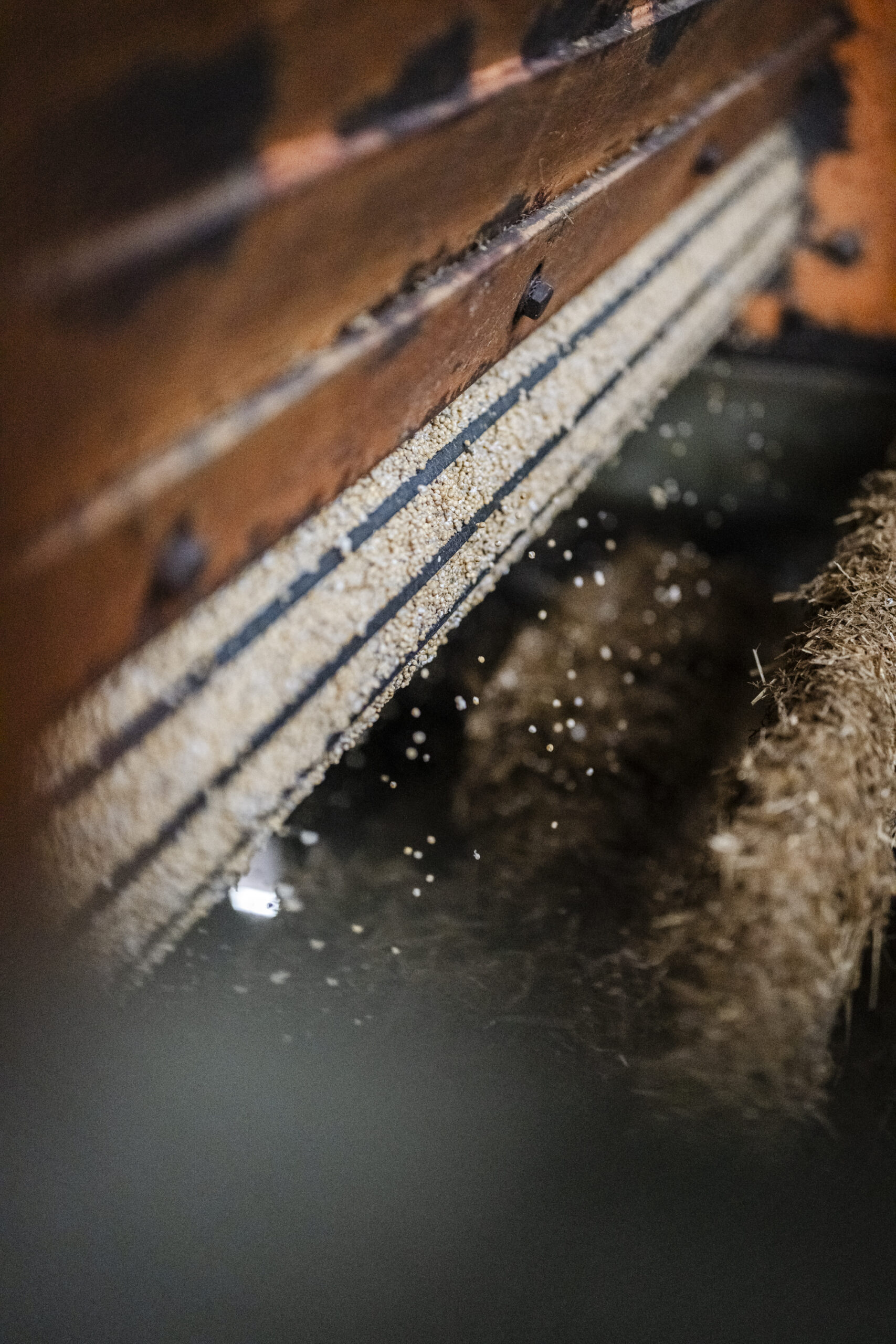The manufacturing process
takes place in 6 stages
Our 30 years of know-how satisfy our customers on a daily basis, thanks to rigorous monitoring of our production and incubation processes.
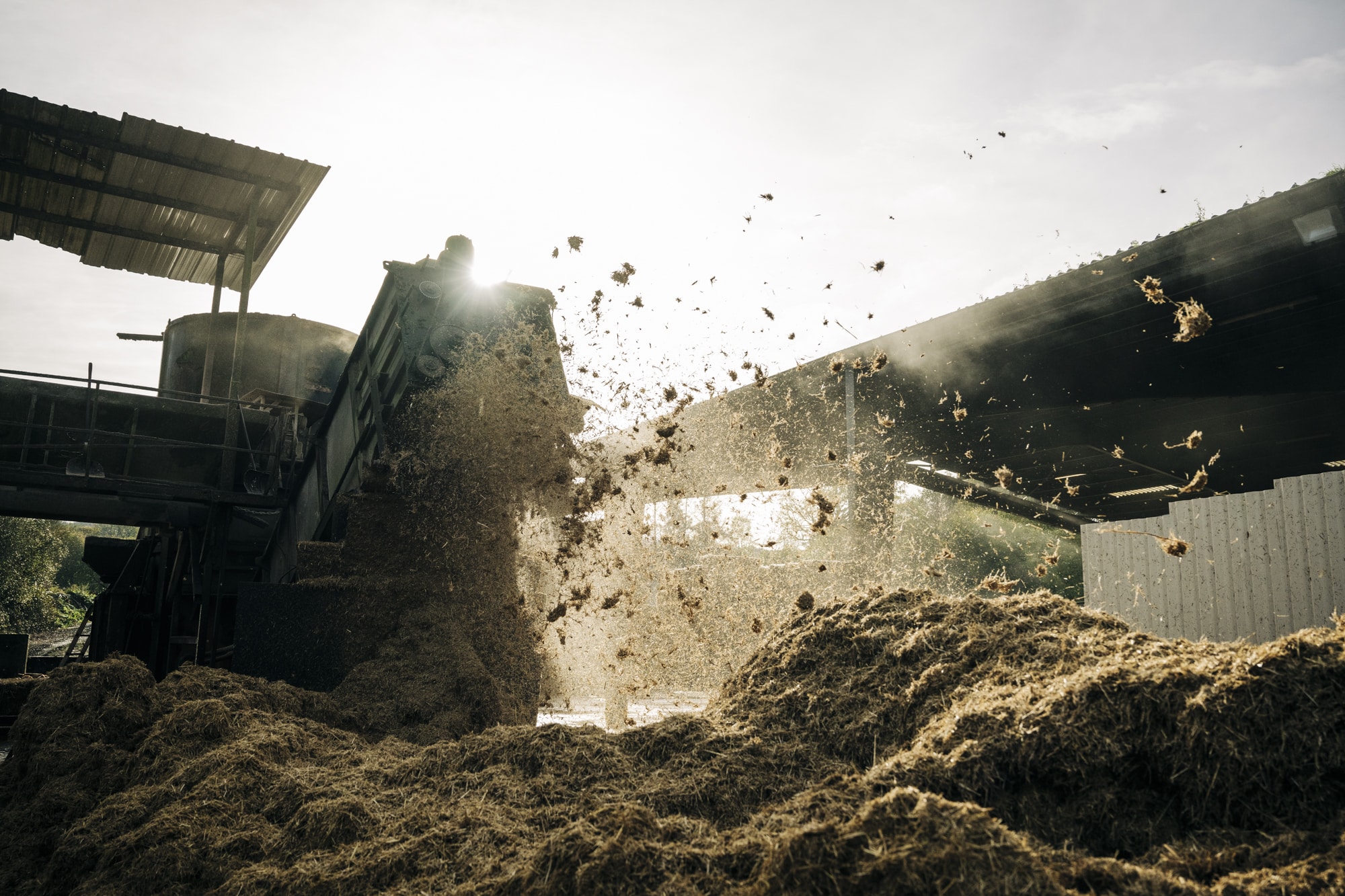
Phase 1: Straw shredding and mixing (recipes)
The straws are finely ground, stirred and moistened to improve homogeneity and create a rich, solid base on which the mushrooms can grow. The raw materials are then added in varying proportions, depending on the mushrooms grown.
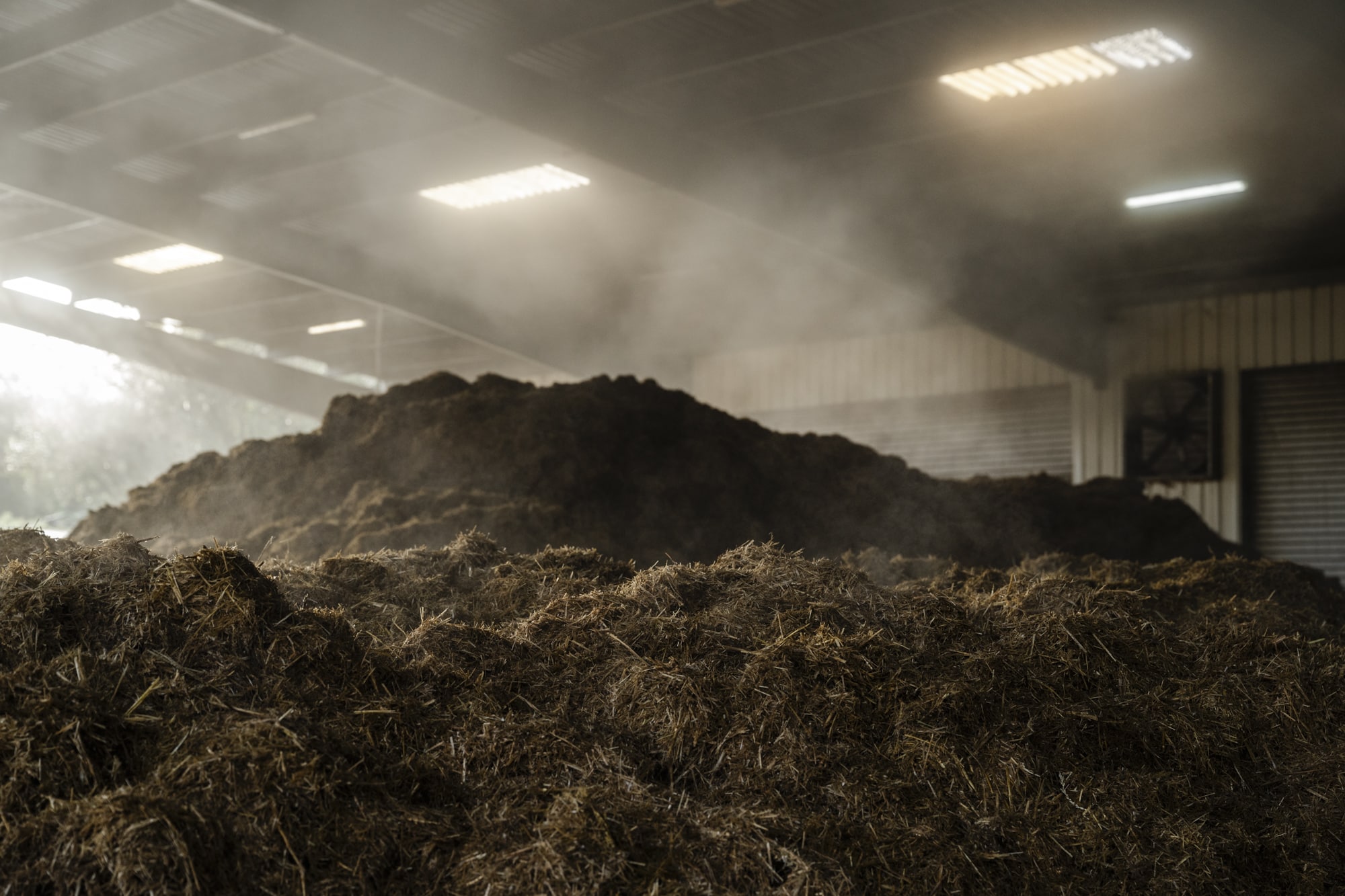
Phase 2: Fermentation
The base obtained during grinding must then be homogenous and broken down. This requires a fermentation phase of varying length, depending on the varieties produced. At this stage, the substrates may contain moulds and 'contaminants'. To eliminate them, they need to be pasteurised.
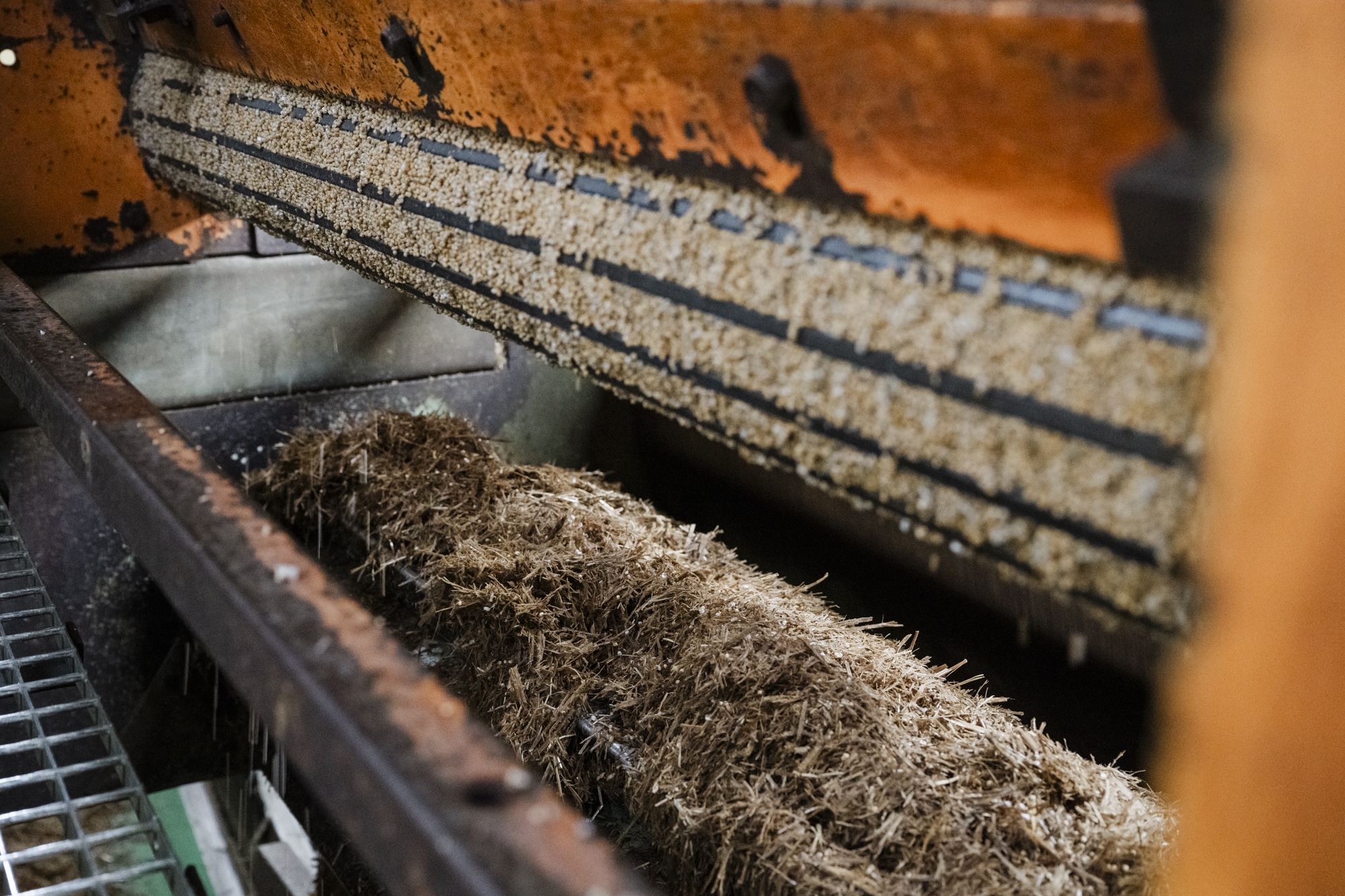
Phase 3: Pasteurisation
This operation is carried out in tunnels by injecting water vapour for 48 to 72 hours. The pasteurisation process, which is entirely computer-aided, enables temperature movements to be monitored constantly and accurately. This means that it is possible to intervene at different stages of the process, thereby controlling all stages of pasteurisation.
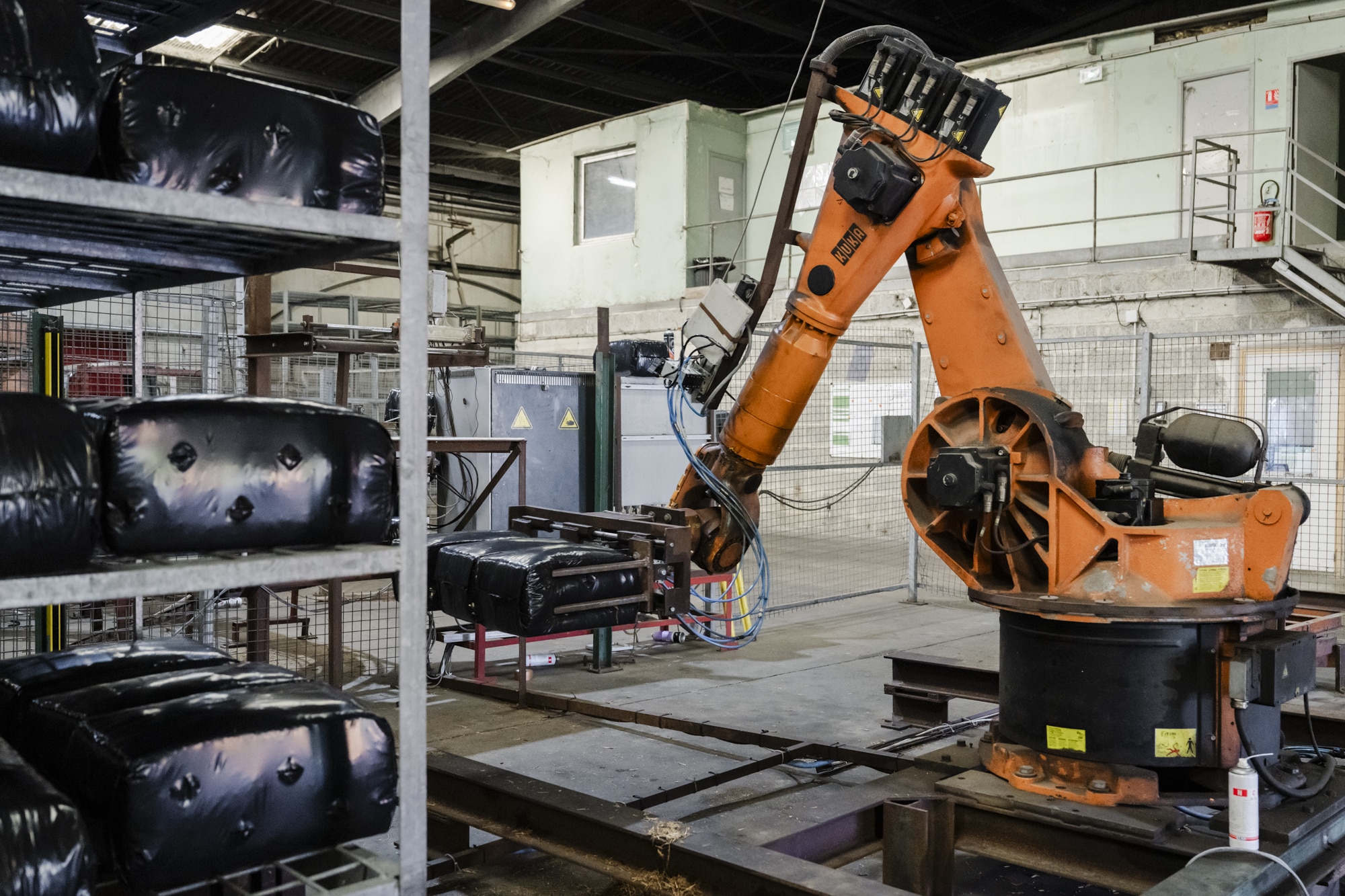
Phase 4: Larding and packaging in blocks
Having reached a favourable physical and biological state, the substrate is seeded as soon as its temperature drops below 25 degrees. The mycelium is incorporated by mechanical spawning. Eurosubstrat adopts the mycelium varieties for each production run to offer substrates seeded in standard blocks of around 50x25x25 cm.
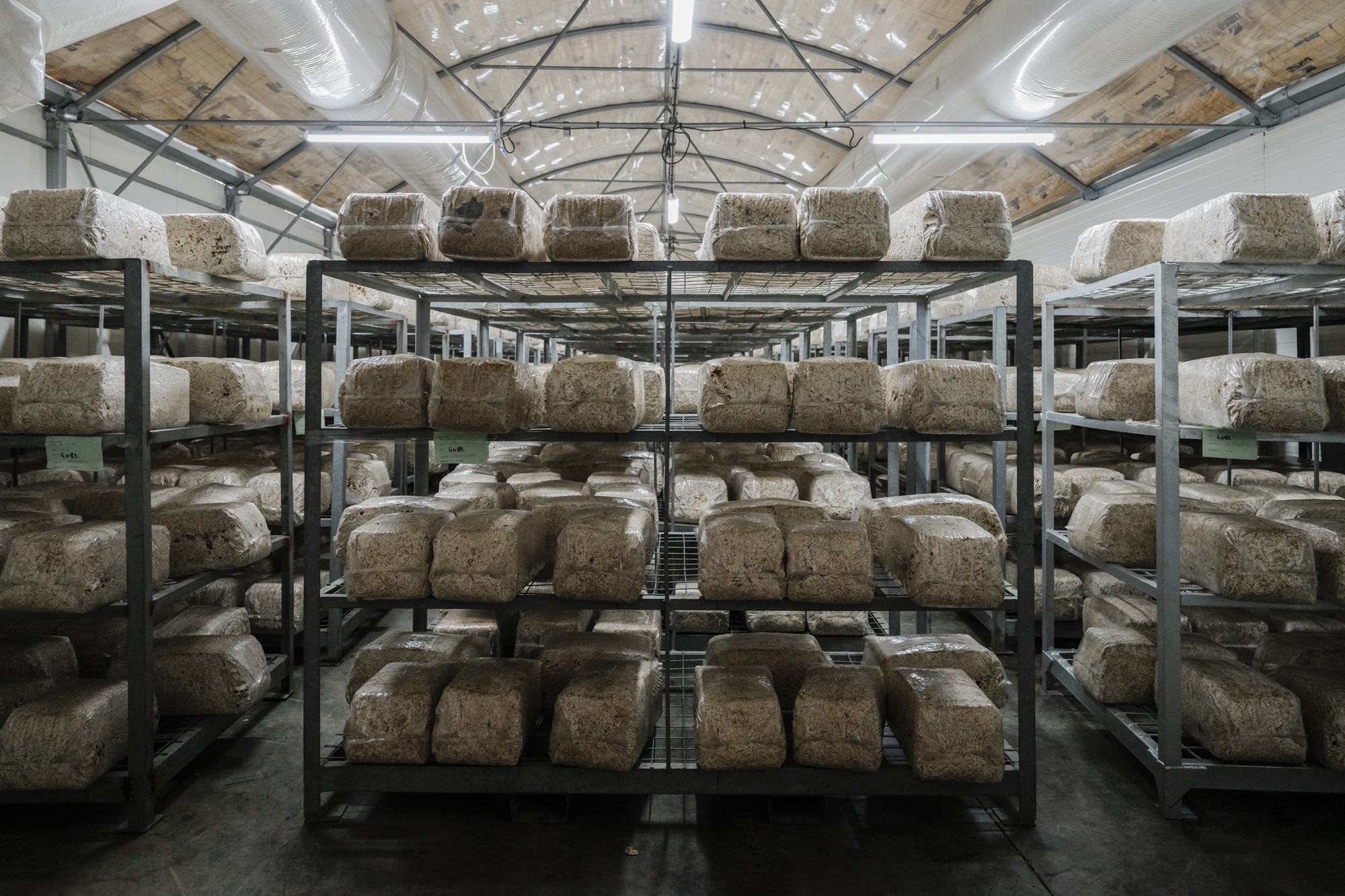
Phase 5: Incubation in greenhouses
Incubation lasts from 15 days to 6 weeks, depending on the variety. This stage is crucial to good production and requires rigour, daily monitoring and seriousness. It allows the seeds to germinate properly to encourage the appearance of the stump filaments, which will then break down the compost and reveal the future fungi.
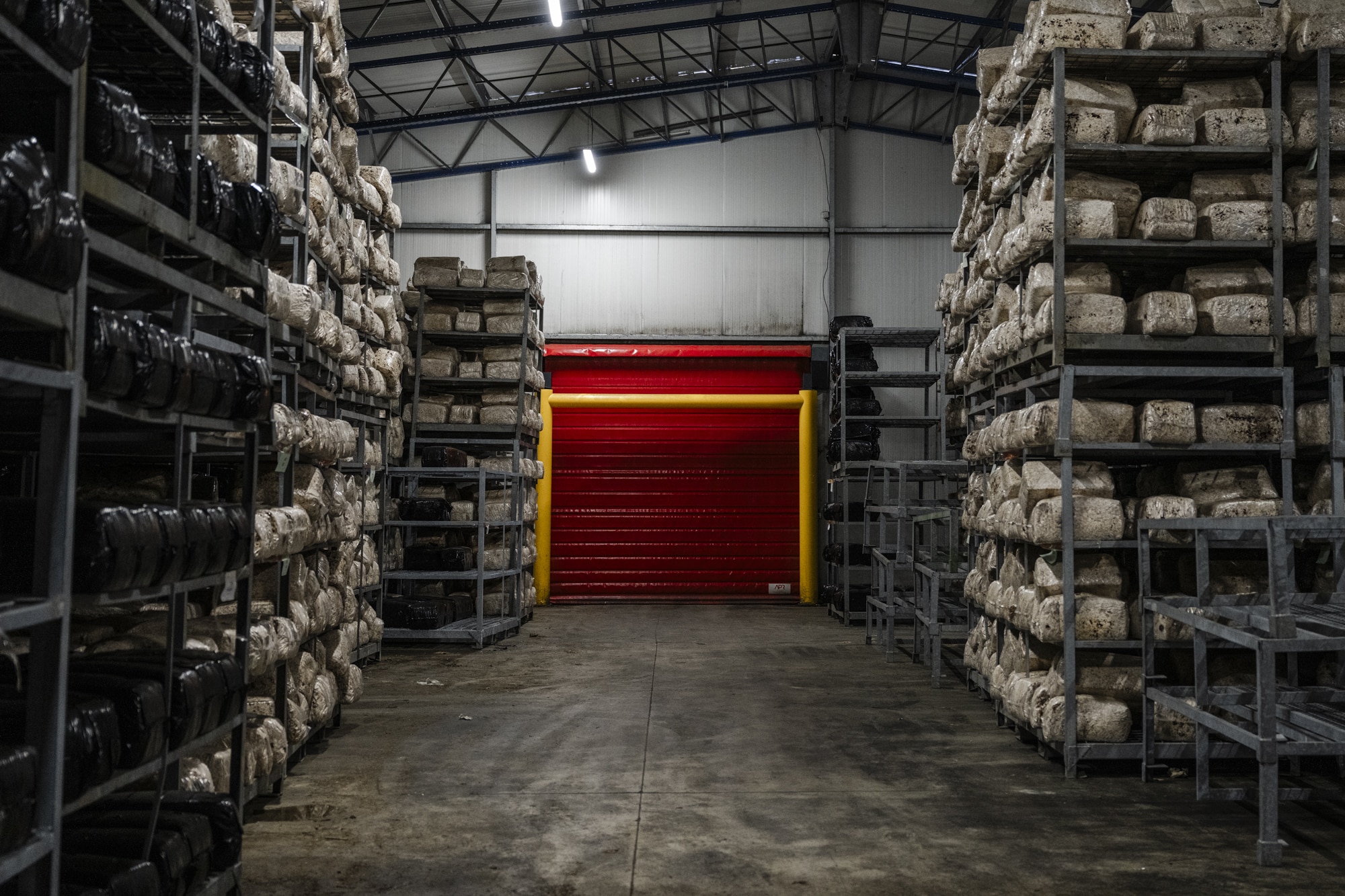
Phase 6: Preparation and dispatch
The substrate is packaged in blocks. Thanks to the adjustment capabilities of the machines, it is possible to respond to all customer requests, even special ones (size, perforation of blocks, etc.). Bales of substrate are packed on full pallets in courier service: 70 blocks. Full pallets in full trucks: 80 blocks.
Explore the performance of our substrates!
As part of our quality of service, we offer technical support by appointment on site or by telephone.

